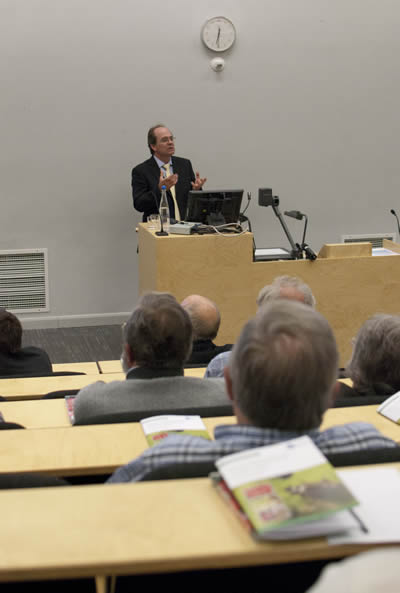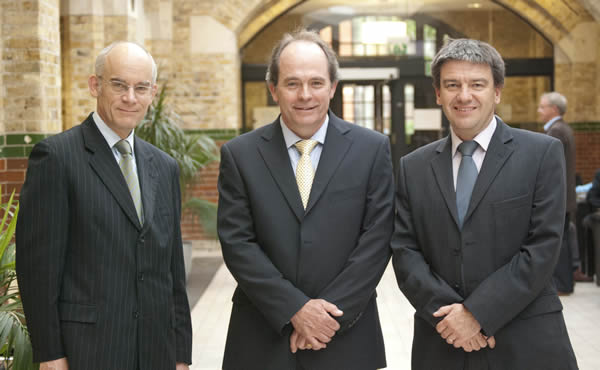
For his Inaugural Professorial Lecture, Professor John Colvin gave a dynamic account of his extensive research, of over 25 years, tackling problems in developing countries caused by insects and associated plant diseases. Through his pioneering research, he has contributed an enormous amount to ensuring food security in the developing world.
John first spoke about the inspiration of his childhood in Africa, specifically the importance of local innovation and agriculture to people's livelihoods
We were given an inspiring overview of the work he and his colleagues have carried out at NRI on a range of tropical pests and diseases. Their approach, of understanding the dynamic interactions between the insect, plants and plant viruses was key to recognising that the well-known whitefly species, Bemisia tabaci, is in fact a group of closely related species that can't be differentiated visually.
The role that whitefly played in the spread of the African Cassava Mosaic Pandemic (triggering famine in Uganda in the 1990s), has been a focus of John's work since the 1990s. He explained how, in response to this pandemic, he and colleagues, collaborating with local partners, introduced new virus resistant cassava varieties. Looking to the future, he is especially enthusiastic about the potential of next generation sequencing technology to further speed up cassava breeding as this "will help solve the major problems that farmers face with cassava diseases".
 In addition, their whitefly research in the tropics has also led to the successful control of the tomato leaf curl virus in India, and through their UK-based research they have developed an effective, functioning plant nursery costing tool for UK growers to help manage their nursery stock.
In addition, their whitefly research in the tropics has also led to the successful control of the tomato leaf curl virus in India, and through their UK-based research they have developed an effective, functioning plant nursery costing tool for UK growers to help manage their nursery stock.
John framed the importance of his work within the context of the rapidly changing world in which we live. He specifically referred to the challenges associated with an increasing global population, high food prices and the impacts of climate change. John pressed for the need for more young scientists around the world to get involved in agricultural research. His message to them was that "if they can make a dent in the losses that occur due to pre-harvest pests and diseases it will go a long way to feeding humanity".
John brought the evening to a close with an appeal for "the need to employ human ingenuity in agriculture".
Recognised internationally as a leading researcher in a remarkable range of subjects, John has authored and co-authored more than 140 scientific publications, book chapters and media articles. For more information, you can read the accompanying lecture series booklet here.

